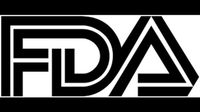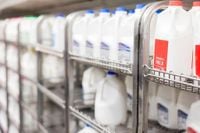The US Food and Drug Administration (FDA) has announced the suspension of its quality control program for Grade ‘A’ fluid milk and related finished products, effective April 21, 2025. This significant move follows a series of workforce cuts implemented by the Trump administration, which has raised concerns about food safety oversight in the nation.
The decision to halt the testing program comes as the Moffett Center Proficiency Testing Laboratory, responsible for dairy testing, has been decommissioned due to a severe shortage of resources and staff. An internal email from the FDA revealed that the laboratory is no longer able to provide the necessary support for proficiency testing and data analysis, which are crucial for maintaining high sanitation standards for Grade ‘A’ milk.
In the wake of these changes, the FDA's ability to detect pathogens and harmful substances in food products has been jeopardized. This situation has arisen after the Trump administration laid off approximately 20,000 employees from the Department of Health and Human Services (HHS), which oversees the FDA. The layoffs were part of a broader effort to shrink the federal workforce, which has led to significant disruptions across various food safety programs.
According to the FDA, the suspension of the milk testing program is not just a temporary setback but reflects a deeper issue within the agency. The Moffett lab’s shutdown has been exacerbated by the proposed cuts of $40 billion to the FDA's budget, which further threatens its ability to conduct essential proficiency testing programs. The FDA has stated it is “actively evaluating alternative approaches for the upcoming fiscal year” and will keep all participating laboratories informed as new information becomes available.
The suspension of the Grade ‘A’ milk testing program is not an isolated incident. Earlier in April 2025, the FDA also halted programs aimed at detecting dangerous pathogens, including Cyclospora, which poses a significant risk to public health. Additionally, the Interlaboratory Comparison Exercise for Detecting Highly Pathogenic Avian Influenza was set to begin but was suspended due to the same workforce issues affecting the Human Food Program.
In a related announcement, Health and Human Services Secretary Robert F. Kennedy, Jr., revealed plans to phase out petroleum-based synthetic dyes from the food supply by the end of 2026. This initiative is seen as a significant step towards improving the health of Americans, particularly children, who may be adversely affected by these chemicals. Kennedy stated, "For too long, some food producers have been feeding Americans petroleum-based chemicals without their knowledge or consent. These poisonous compounds offer no nutritional benefit and pose real, measurable dangers to our children’s health and development."
The decision to eliminate synthetic dyes will impact a wide range of products, including breakfast cereals, candy, and snacks. The Trump administration has framed this move as part of its broader health initiative, dubbed "Make America Healthy Again," which aims to enhance food safety and reduce reliance on harmful substances in the food supply.
Despite the assurances from HHS that dairy product testing will continue, the suspension of the FDA's proficiency program raises critical questions about the agency's future capabilities. The FDA has insisted that the proficiency testing was only paused due to a transition to a new laboratory, but the uncertainty surrounding the agency's funding and staffing levels leaves many in the food industry concerned.
As the FDA grapples with these challenges, experts warn that the lack of rigorous testing could lead to increased risks associated with foodborne illnesses. The agency's current trajectory suggests a troubling trend in food safety oversight, which could have far-reaching consequences for public health.
In conclusion, the suspension of the FDA's milk testing program amid significant workforce cuts is a concerning development for food safety in the United States. With the agency already facing challenges in pathogen detection and testing capabilities, the future of food safety oversight hangs in the balance. As the FDA navigates these changes, stakeholders from across the food industry and public health sectors will be watching closely to see how these decisions will impact the safety and quality of the nation's food supply.





